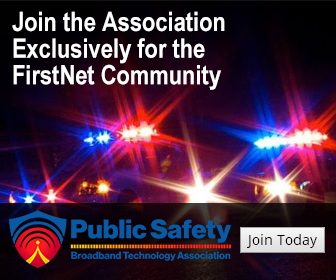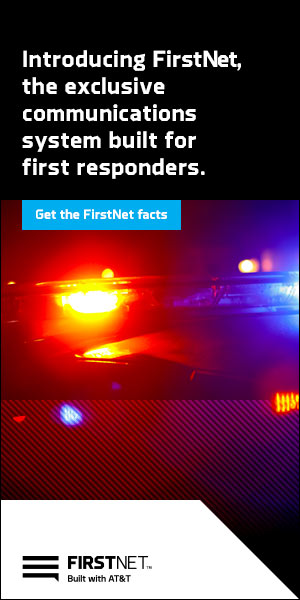by ECC Editor | Jul 13, 2021 | Articles, Comm Center News
National Emergency Number Association (NENA) board members yesterday released the latest version of the i3 standard for next-generation 911 (NG911) infrastructure, which will be submitted to the American National Standard Institute (ANSI) for approval that could resolve one point of contention in NG911 funding proposals.
“This is a landmark moment in the evolution of NG911,” NENA President Gary Bell said in a prepared statement. “The public-safety community and the tech industry now have the most up-to-date, comprehensive, consensus-driven, open standard for NG911. This will no doubt hasten and strengthen our push to see NG911 systems, services, and products deployed coast to coast… READ MORE
by AllThingsECC.com | Jul 11, 2021 | Articles, Comm Center News
By Karl Wilmes, Chief (ret)
I remember as a newly promoted Sergeant meeting with my shift of officers outside in the parking lot of a bar fight. The incident was all but over, and one of the officers called dispatch on the radio for some information on a suspect we were arresting. The portable radio did not work, and Officer Mike threw the radio across the parking lot and announced to the world, “this piece of s..t” never works”. I clearly remember the radio breaking into pieces as it splashed against the asphalt. I can remember thinking to myself how I was going to explain this to the Chief in the morning and thinking those brand new Sergeant stripes on my shirt were probably gone.
That was the golden ages of law enforcement, the eighties. Today, we all have smart phones. No different than in the dark ages of just a portable radio, when you are on the scene of an incident, or simply need to call home you want your phone to work. Who wants to hear, “can you hear me now”, in a snowstorm at 3:00 A.M. in the morning…
by AllThingsECC.com | Jul 10, 2021 | Articles, Comm Center News
VILNIUS, Lithuania, July 09, 2021 (GLOBE NEWSWIRE) — Peplink and Assured Wireless have teamed together to create a FirstNet MegaRange™ solution that combines Peplink’s SpeedFusion technology with Assured Wireless’ High Power User Equipment (HPUE), allowing first responders to protect mission-critical applications, visualize and manage their wireless connections.
FirstNet is the only network where public safety can take advantage of the highest power class signaling available in the U.S. with FirstNet MegaRange™, the HPUE solution exclusively available on Band 14. HPUE boosts transmission power up to 6x over traditional LTE equipment, which vastly improves cellular coverage in remote regions, rural areas, maritime environments, and metropolitan areas where cellular signal penetration through buildings and underground structures can be challenging – helping first responders communicate inside and out…

by AllThingsECC.com | Jul 9, 2021 | Articles, Comm Center News
Given the popularity of telecommuting and the efficiencies it offers, remote work is likely here to stay. In fact, a few surveys have determined that fewer than one in five executives want to return to a pre-pandemic routine, and one in three employees would consider quitting their job altogether if forced to be in the office full time.
From 77 mobile towers burned in Britain to the Nashville, Tenn., bombing, a disturbing wave of anti-5G sentiment is rising across the nation and the globe. The claims not only threaten the widespread adoption of next-generation connectivity at a time when we need it most to bolster the economic recovery effort, but they also could serve to undermine efforts to bolster public safety by preventing the deployment of critical communications infrastructure…
by AllThingsECC.com | Jul 8, 2021 | Articles, Comm Center News
In this week’s Advocate, I will look at The FirstNet Authority’s expanding role as it works with countries around the world. Also this week, several federal organizations have decided to work together on digital-divide issues, while another group of federal agencies appears to be duplicating efforts that have been successful in the private sector, and NPSTC has announced this year’s awards. Then there is AT&T’s 5G in the cloud, and the Microsoft/AT&T agreement for the AT&T 5G core to be hosted in the Microsoft Azure cloud.
FirstNet and International Public-Safety Broadband Systems
The FirstNet Authority, created by the same 2012 law as the FirstNet network, has been overseeing the FirstNet (Built with AT&T) build-out and has reinvested funds into the network for enhancements such as adding 5G capabilities to the FirstNet core and adding deployables to the fleet…

by AllThingsECC.com | Jul 7, 2021 | Articles, Comm Center News
PCTEL, Inc. (Nasdaq: PCTI), a leading global provider of wireless technology, announced the launch of SeeHawk™ Central, a cloud-based reporting and automation platform for in-building critical communications network testing.
To ensure reliable indoor communications for first responders, local jurisdictions increasingly require building owners to verify compliance with strict radio coverage requirements using a grid-based testing method. The PCTEL® public safety network testing solution, which combines SeeHawk® Touch software with an IBflex® scanning receiver, has transformed the way this testing and reporting is conducted by replacing manual processes with an automated system that saves time and money. With SeeHawk Central, users of the testing solution will be able to securely upload data to the cloud, automate workflows, expand testing operations, and offer value-added reports to customers through a centralized, secure online platform…



